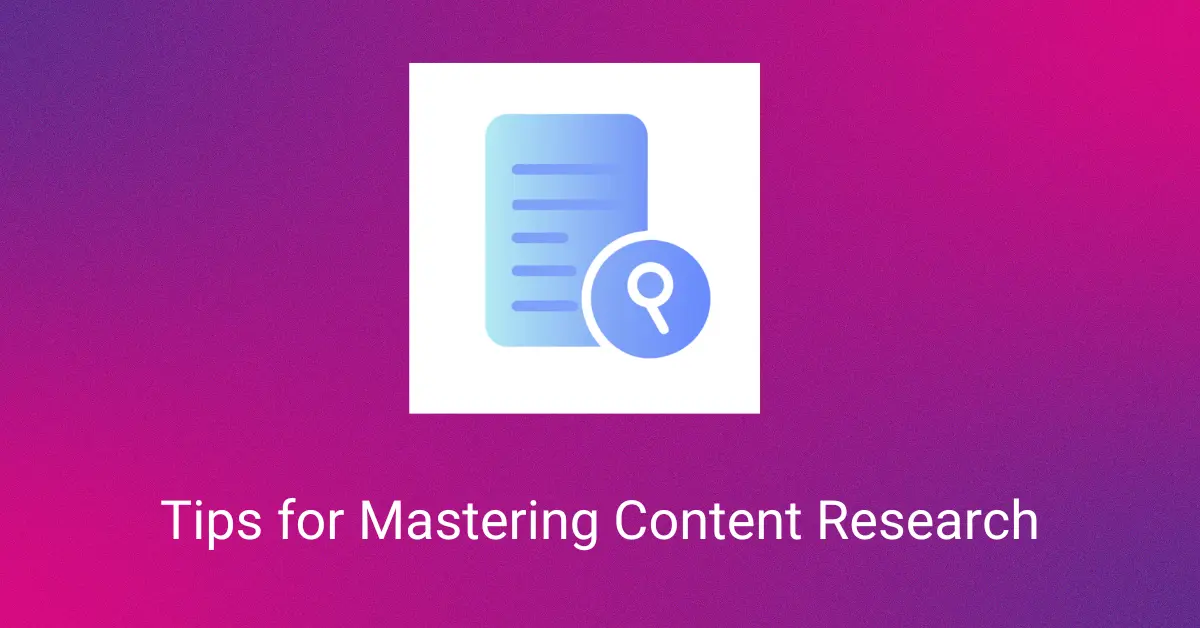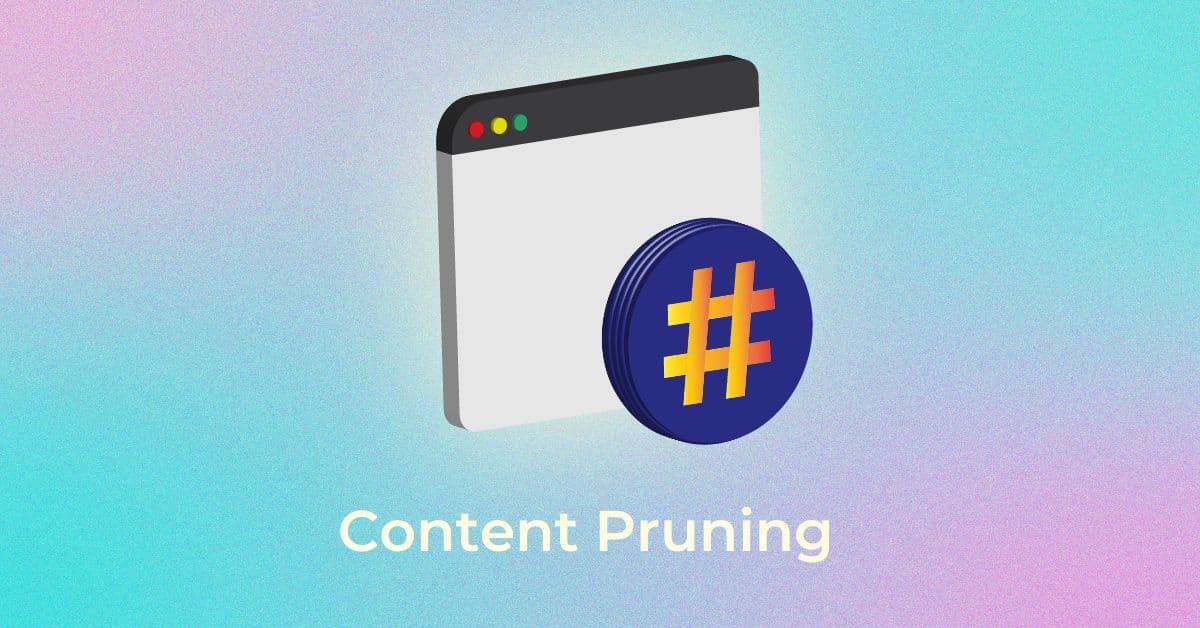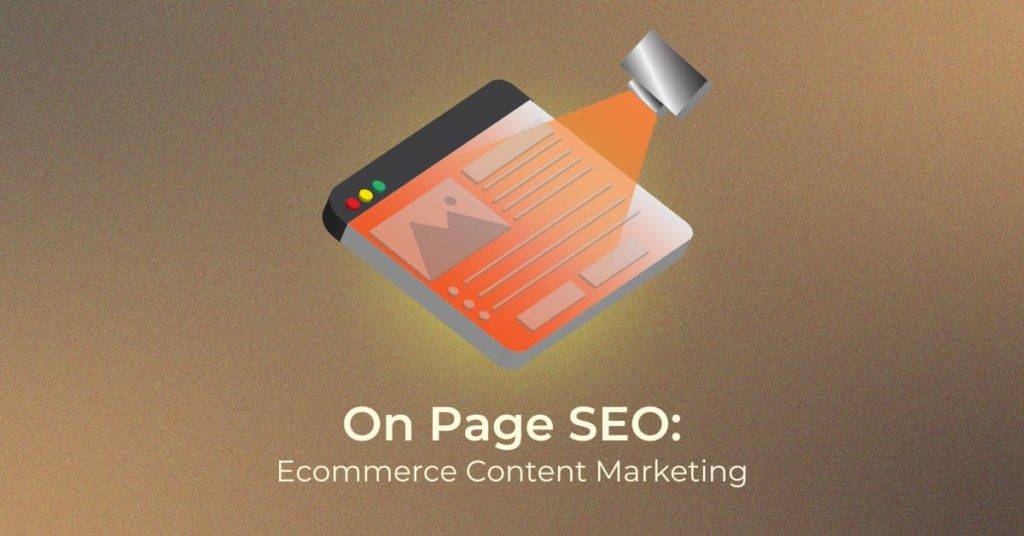If you own an ecommerce site, how would you get prospective clients to your Web page? Every business owner must spend some time thinking about how to differentiate one’s offerings from those of the competitors. This will inevitably involve learning about the best ecommerce content marketing strategies.
Ecommerce content marketing is crucial for creating brand awareness, improving lead quality, and boosting sales figures. In times when biggies like Amazon dominate the ecommerce industry, a solid content marketing strategy will enable you to compete with them. If you are new to this segment, we have some thoughts on content marketing and how you can leverage certain strategies to market your content and improve the performance of your ecommerce site.
Optimize, rank, and flourish your online store's performance with our award-winning strategies.
Want your eCommerce site
to rank higher on Google SERP?
Optimize, rank, and flourish your online store's performance with our award-winning strategies.
What is Content Marketing?
Content marketing involves attracting prospective clients through compelling content. It entails producing well-researched, SEO-optimized content, publishing it on the website, and then distributing it to various prospects through various mediums. Marking your digital presence in today’s world is impossible if you do not use this strategy.
Content marketing educates people about your brand and the products in your portfolio. You can use various methods to market your content. You can share infographics on social media, create newsletters and email campaigns, start a YouTube channel and post content on blogs, among other things.
A proper ecommerce content strategy will assist you in building relationships with both new and existing clients. When visitors obtain valuable information from your Web page, they are more likely to convert into loyal customers. Good, informative, and engaging content also helps your customers understand why your products are superior to those of your competitors.
Why does ecommerce content marketing provide you with a strategic benefit?
1) It enhances SEO performance
Content marketing and search engine optimization (SEO) go hand in hand. A well-prepared content marketing strategy is advantageous in terms of SEO. For example, when you create content for your website, it is well researched, backed by data, and optimized with high search volume keywords. When you start posting such content on different channels, the keyword-rich titles boost your visibility, and the optimization helps you gain organic traffic.
Simply put, if you want to save money on paid marketing, a well-optimized content marketing strategy for ecommerce is your best option. In addition, SEO strategy in marketing will further aid in obtaining quality prospects.
2) Ecommerce content marketing meets the buyer’s journey
Ecommerce content marketing is more than just getting people to visit your website. The concept is far broader. It starts with a person visiting your site, exploring your content, navigating to different product pages, making a purchase, and returning to your site for after-sales services.
When creating content, make an effort to write it in such a way that prospects are compelled to return to your site. If you only focus on product pages, the chances that a visitor will make a purchase are slim. This is where your competitors identify a gap and fill it to increase their sales.
3) Content marketing distinguishes the brand
As an ecommerce site owner, it might be difficult for you to distinguish your product from others. At such times, you can use an ecommerce SEO service to assist prospective customers in understanding how your product and brand differ from the competition. Unique content, social media campaigns, and influencer marketing can help you in this regard.
4) It helps to optimize the conversion funnel
Many ecommerce site owners create content that has nothing to do with their business or the site. This contributes to a disconnection between you and your prospects, which eventually leads to a decrease in conversion rate. However, a well-planned strategy will ensure that prospects sail through the conversion funnel and buy something from your site. You should also acknowledge that not everyone who visits your website is looking to buy something. Thus, at each stage, you must strengthen or build your relationship with them and try to address and resolve their concerns.
Why is Content Marketing Crucial to ecommerce?
Content marketing allows you to gain industry recognition and gain the attention of your prospects. If you consistently create relevant and informative content that visitors to your website find useful, it’s only a matter of time before your website is regarded as an authority in the field.
Moreover, prospects are more likely to return to your site if they find answers to their questions and concerns on your website—if the content addresses their pain point. But apart from that, content marketing practices such as customer testimonials assist you in gaining the trust of your customers. It also helps to establish your brand as a social leader.
Content Marketing Goals for ecommerce Brands
1) Lead Generation
The primary goal of content marketing is to attract high-quality prospects. When you distribute your content across multiple platforms, users who are interested in it spend time exploring it. You can obtain the details of such users using various tools. You can then use this information to convert them into buyers.
2) Increase Sales
Using an ecommerce content strategy, such as posting customer reviews, influences decisions of site visitors. If a particular product on your site has positive reviews, site visitors are more likely to purchase that product. Moreover, strategies such as promoting your products through industry experts or social media influencers also increase sales.
3) Nurturing and Lead Conversion
What if your website only receives traffic but no conversions? Content marketing helps you generate quality traffic while converting site visitors into paying customers. The results will not be immediate, and your sales team will be responsible for following up to convert them into buyers. You can deploy this strategy to nurture your prospects and persuade them to buy more products from your website.
4) Cross-Selling and Up-Selling
According to data, approximately 32% of customers place orders from the same company within a year of becoming a customer. The goal of cross-selling is to pitch supplementary products to existing ones. For example, if your customer purchases a bed, you can persuade them to buy bedsheets or pillows from your website.
5)Providing excellent customer service
Customer service should be a top priority of e-commerce brands strategizing content marketing for their brand. Your content marketing initiatives should help create and distribute valuable content that is that is relevant and consistent with your brand and drives customer satisfaction.
6)Increased loyalty from clients
Your marketing efforts should also be built around retaining and serving existing customers rather than generating new leads. It is always profitable to retain existing customers and increase loyalty from clients.
When connected on a deeper level with your clients via high-quality, well-targeted content by leveraging customer intelligence, you create loyalty and trustworthiness. This is crucial for establishing long-term relationships and sustainability for your e-commerce business.
7)Providing knowledge and direction
Content marketing can also be used to gather information and data across the entire customer journey. This valuable customer intelligence can help build customer personas, segment them into target groups, and direct your marketing efforts better.
8)Presenting the company as a thought leader
A company and organization must portray itself as a thought leader and provide valuable content to build trust between the client and yourself. While building credibility, the brand takes the opportunity to portray itself as an expert and a strong go-to resource in its specific domain.
9)A wider brand audience and greater brand recognition
Content marketing is a proven strategy for using SEO-optimized content to reach a wider audience and build brand visibility online. While building your content marketing strategy, sell your value as a business to attract customers.
10)Increased social media interaction
If a company seeks to build its online presence, it cannot do without strong social media engagement. Social media interaction can be fruitful for brands to boost their website traffic, gain insights, and engage in authentic social media interactions with their customers.
Ecommerce Content Marketing Strategies
1) Topic Cluster
A topic cluster is a type of content organisation that centres on a single theme. This strategy considers your site’s pillar page to be the hub, while other Web pages containing blogs related to the pillar pages are considered the cluster. Here each of your site supporting pages links to the landing page.
2) User-Generated Content
One of the most effective word-of-mouth marketing strategies is user-generated content. It demonstrates to your website’s visitors how your products have influenced people’s lives. This type of content consists of publishing videos submitted by customers, encouraging users to leave comments, and using short clips on social media platforms.
3) Content Hub
A content hub is a section of your ecommerce site that contains curated content about a specific topic. Such content could include videos, blogs, infographics, and podcasts. For example, if you sell cosmetics, your content hub could include material on lotion for acne, dry skin, dirt removal, black spots, and so on.
4) Quizzes
Another effective content marketing strategy is quizzes. A quiz assists your prospects in making an informed purchasing decision.
You can use quizzes for both B2C and B2B transactions. For example, you could include a quiz question in the clothing category, such as “Should I buy knitted cotton cloth or organza?”. It will also help you know your customers’ preferences.
5) Speak About the Local Community
If the majority of your ecommerce site’s sellers are local, your website and marketing strategy must reflect this. For example, if there are several local artisans, your content must focus on the attributes that differentiate them from others and how their products are unique. You must also brief your prospects on why and how you are involved in it.
6) Create A Glossary of Terms
Your site may contain a variety of products that your visitors are unaware of. Take clothing as an example. Designers release new products frequently. And, in order to persuade users to purchase those products, you must first educate them about new arrivals. You can accomplish this by including a comprehensive list of new items added, along with a glossary, on your website.
7) Infographics
Infographics can be a good vehicle to inform customers about your products or services. Or about anything related to your industry. Assume that you have written a few thousand words about a really important topic. To get people (especially people on social media) to engage with at least the gist of that topic, you can pick out the crucial points from the piece and condense it into really short bullet points. To this, you can add some images and colours, and share it on your channel.
8) Testimonials and Customer Reviews
Whether it is an ecommerce website or any other site, customer testimonials are a great way to boost sales. It is an SEO strategy that helps you gain trust and turn leads into buyers. When implementing this approach, make sure to integrate testimonial videos on your site.
9) Tutorial Videos
Another strategy for increasing sales is to create tutorial videos. If you want to stand out from the crowd, include explainer videos for complex products. For example, assembling certain products requires significant time and effort. Such product tutorial videos can be extremely useful in converting visitors into buyers because they not only showcase your knowledge on the subject but also show that you understand what pain points to address.
10) Share the Do-it-Yourself (DIY) Inspiration
Content marketing is crucial if you want to boost the demand for your product. Under this strategy, you need to inform users of alternative usage of your product. Give them many reasons to buy your product. For example, various decor items can be used in the kitchen area, sitting room, or balcony.
11) Be Part of the Audience’s Lifestyle
Assume that your company’s website has thousands of subscribers. If you do not tailor your content so that it caters to different subscribers’ needs and lifestyles, you will notice a significant drop in the number of subscribers. While this is a lengthy process that requires extensive research, it is still the most effective way to connect with prospects.
12) Content Amplification
No matter how good your content is, you won’t get any visitors unless your target audience is aware of it. The goal of content amplification is to distribute content across multiple channels. You can share it on various social media platforms, send emailers, and connect with industry influencers. If you are still not getting results, try paid marketing.
13) Create a Twist to Influencer Content
Almost all beauty and fitness product sellers now work with influencers to market their products. But what if the same influencer is promoting the product of a different brand from the same industry? In such a case, you will need to be extra careful when drafting your content. Understand your target audience thoroughly, and tailor your content to connect with them.
14) Answer Questions People Ask
Never ignore your visitors’ questions, no matter how many times they ask the same one. Users of your ecommerce site may have questions about product features, pricing, seller information, and so on. If you can address their concerns, the chances of those prospects becoming buyers are high. And if you connect with them personally over a call, the personal touch will speak volumes about your interest in connecting with your audience.
15) Safely Reuse Quality Content
What if the content you published years ago drew a lot of traffic? Don’t you want to use it again to attract new visitors’ attention? You can always add new information to existing content. Refurbished content has immense potential to rank immediately on search engine result pages (SERPs). You only need to smartly weave in the new information and new keywords.
16) Product Maintenance Tips
When customers purchase a product, they are more interested in learning how to extend its lifespan. Consider two ecommerce sites that sell identical products. One site provides detailed product information as well as maintenance tips while the other one only provides product specifications. Users will naturally prefer to make the purchase from the former.
17) Frequently Asked Questions (FAQs) Pages
Make an effort to find the questions that customers ask most frequently. Including relevant FAQs is an effective way to get your brand noticed. As an ecommerce site owner, your FAQ should include details of a refund policy, order cancellation policy, exchange policy, and so on.
Does your business need a content marketing strategy?
A good content marketing strategy is essential for any business looking to increase its sales and conversion rates. When brands strategize and optimize the content on their website, they invite high-quality traffic to their website, build trust among their customers, and establish long-term relationships with their clients.
A well-designed and targeted content marketing strategy can help you achieve your sales goals, and profitability targets, add sustainability and growth, and lend your brand the credibility and trust it deserves.
Conclusion
An ecommerce website is not the same as a regular website. It necessitates special attention to pillar pages, product pages, and product specification optimization. You can quickly increase sales by properly marketing your ecommerce site’s content. Simply implement any or all of these content marketing strategies for ecommerce, and wait for the results to show!
Popular Searches
How useful was this post?
5 / 5. 1

















